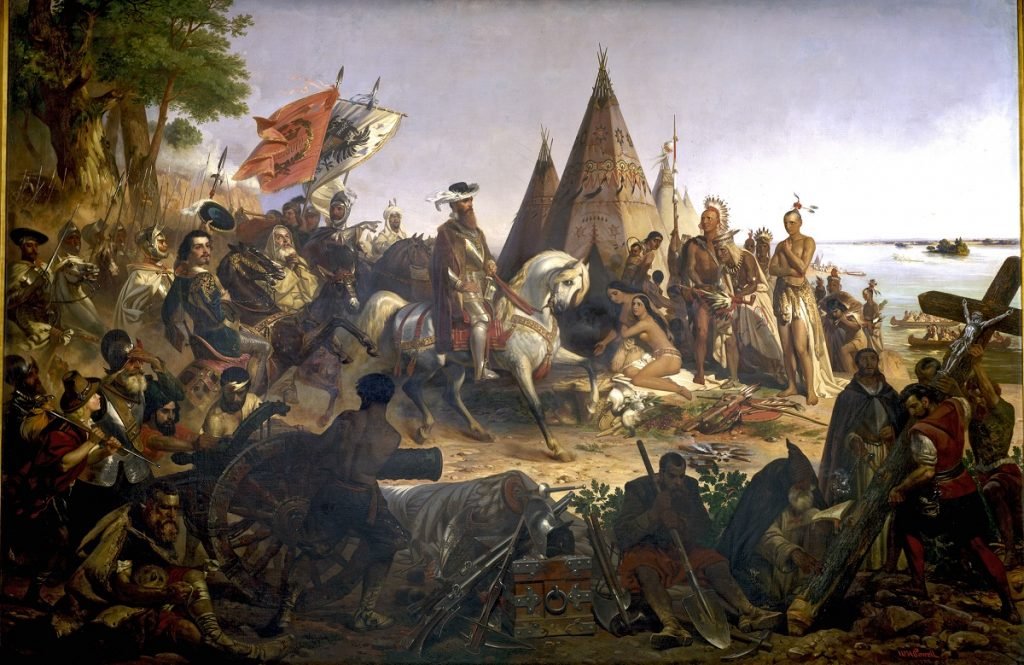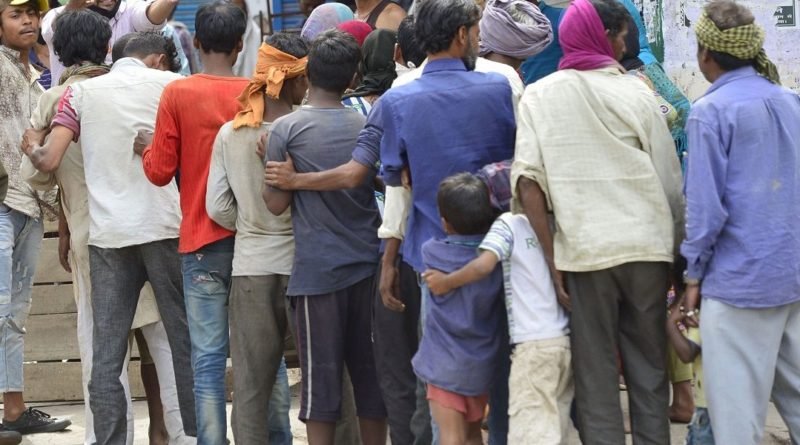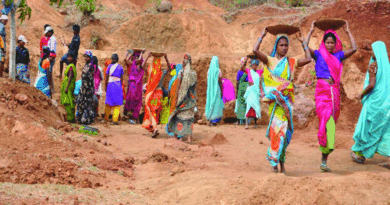The Coronavirus Has Rendered the Everyday Injustice of Our Times Dramatic
Along with Europeans who disembarked on the shores of the Americas and Australia came germs. The verdict is still out on how they fared in the new worlds they came to pervade. No one disputes that they decimated entire populations. The dispute has to do with how these deaths came about: was there a straight passage for these germs from the ships to shore? Did they gobble up lives because they caused epidemics in what was until then ‘virgin soil’? That is, did death come about because local populations had no immunity against hitherto unknown diseases? Or were they victims of epidemics that came about through sustained interaction between Europeans and local populations?
The keyword here is ‘interaction’: it encompasses a range of relationships between the visitors-settlers and indigenous people, ranging from awkward friendships to slavery, trade exchanges to fierce warfare. Over time, this interaction turned into conquest of the most vile and violent sort, and death due to germs was hastened by other conditions, including loss of land, ravaging of crops, destruction of lived environments, acts of everyday cruelty enacted with impunity by the settlers and war. The conditions of conquest, then, framed deaths caused by epidemics of one kind or another: germs were the carriers but they could not have achieved as much had there not been these other ‘enabling’ conditions.
Eduardo Galeano’s Open Veins of Latin America draws a map of the world the conquistadors made in all its bloody, cruel glory, and extractive terror, all of which fed and nourished not only empires, but also set in place vastly unequal world economic systems. It is this world that made it possible for typhus and small pox and various other conditions to thrive and do their worst. Alfred Crosby’s The Columbian Exchange: Biological and Cultural Consequences of 1492 establishes these connections from the earliest period of European presence in the Americas. Histories of aboriginal peoples in Australia provide us with similar maps, equally bloody and which, likewise, reveal the contours of social and economic systems that sustained germs and death in large numbers (see Colin Tatz’s Genocide in Australia).

Today, as the world mulls over travelling viruses it is useful to recall these other stories to do with germs: and how they destroyed entire ways of life, diverse ways of being civilised and sociable. Currently, as we helplessly look to history, to make sense of the present, we go back to the Spanish flu or the plague that devastated not only medieval Europe but parts of the British Empire in the 19th century. But these other histories of germs that were thoroughly colonial are perhaps as relevant, for they tell us how and why germs matter: their ability to destroy lives was not due only to their deadly nature, rather they came with systems of extraction, dispossession and violent regulation of labouring lives.
Today’s germs are no different. The random movement of the novel coronavirus, the ease with which it settles into many a host body, mimic how we live and work. There is a swiftness to this time in history, and nowhere is this more evident as in our acts of speculation, across time zones and diverse geographies; acts that create a financial buzz that has not much to do with actual production or with the value-producing labour process. A buzz works on the stocks and share market, elevating some and downgrading orders in a lottery that knows no logic except that of profit and financial aggrandisement.
This logic is matched by the busy and convulsive energy of consumption. Products travel as swiftly and effortlessly and the ease of this movement, the availability of all things at all times masks the larger systems at work and which make it possible for this traffic in innumerable goods:
Systems of production that leaves countless workers hungry even as supermarkets across the world are overstocked with every kind of exotic food. Of manufacture that produces goods using sweated labour for standardised consumption across East Asia, Europe and the US. Of ravaged environments subject to primitive accumulation, dispossession and extraction, undertaken to service ‘needs’ that know no limits but which can only be fulfilled by the systematic destruction of working lives and species.
Just as the germs of the colonial era heralded conquest and genocide, the coronavirus comes riding on mobile capital. It preys on frail bodies, but equally puts healthy ones at risk – not unlike capital in the neo-liberal era that sucks life out of an already vulnerable and impoverished workforce, even as it leeches on the energy of the young, who are choicelessly thrust into a competitive, unregulated and pitiless labour market.
Capital and coronavirus, presided over by a watchful state, have opened up a vast landscape of suffering, which in so-called normal times, appeared the very stuff of things, as if they were unavoidable, given. The virus has literally taken this world apart: it has rendered the everyday injustice of our times dramatic, and shown up the routine that sustains our economy and polity to be an exceptional instance of cruelty. This routine is both old and new, drawing on the indefatigable caste order and the relentless energy of capital and the market. And it is normalised by the regulatory state to whom laboring lives are visible just so they might be viewed, minimally catered to and sent back to work. Or disciplined, muzzled and punished.
We cannot tackle the coronavirus without tackling capital and its depredations. This much has been made clear by overburdened, underfinanced and increasingly privatised health systems across the so-called developed world. The ‘management’ of well-being and lives and the increasing alienation of the clinician from her site of work and the bodies and beings she is to minister to have been the subject of irate discussions, especially in the US. In our context, private health services have been conspicuous by their absence in public discussions on well-being and if anything the virus has shown up the gratuitousness of their services: quarantined and locked down people are yet getting along without having to scan, ultrasound and xray their bodies, for reasons that are never quite specified by the clinicians they are subject to in private services.
The visibility gained by the public health services has shown up the system for better and for worse: its woefully underfunded condition as well as the dedication with which doctors and others who are in the forefront of fighting the virus are attending to their work. Capital has almost no role to play in any of these measures, except offer aid and much of it is in any case band-aid, meant to tide over the situation, and not really of a kind that the state can draw on and utilize to strengthen its public health systems.

People walk past a hospital. Photo: PTI
The coronavirus has also shown the world of production and labour to be graded and outsourced in ways that match the graduated inequality of our social system, making it impossible to hold to account those who mobilise labour and arrange for it to migrate across the country. These agents are still lackeys in an economic order whose movers and shakers are masked out of existence. Small and middle level producers who often have to work limited resources and cannot expect more than a modicum of state support are sadly equally complicit in a system that thrives above on all on low wages, working conditions that are abysmal and the complete absence of social insurance of any sort for workers.
While the virus is viewed as the ultimate bogeyman that we need to worry about, the capitalists and financiers, their protectors and all else who benefit from existing criminal regimes of extraction and production appear vague benefactors who create employment. What is not of course spoken of is that alongside what they produce, they also reproduce a labour regime, chronically underpaid and semi-starved.
The coronavirus has served notice on us, but rather than bring the actual perpetrators of suffering to the dock, we are all set on penalising labour and incarcerating a productive citizenry.




